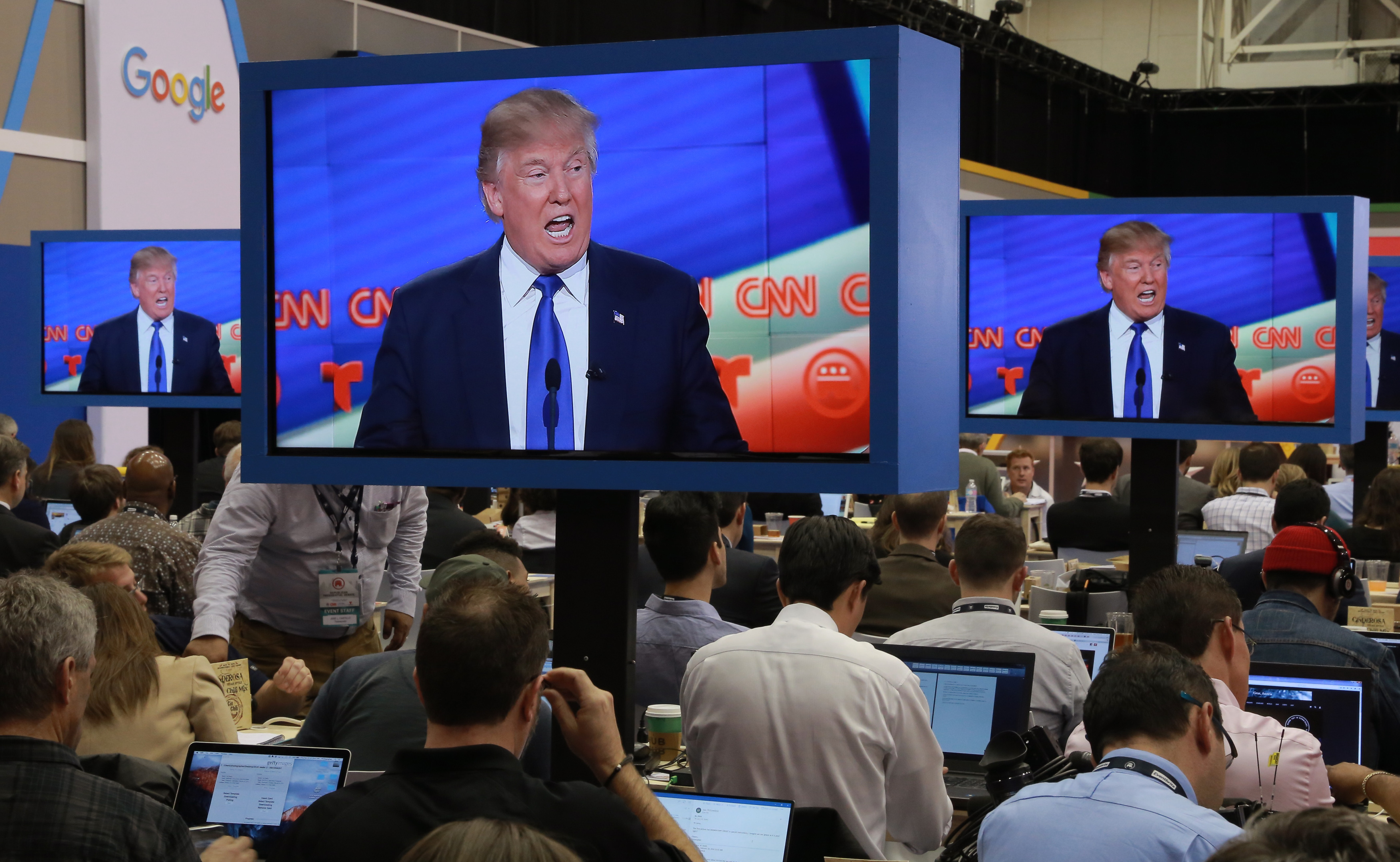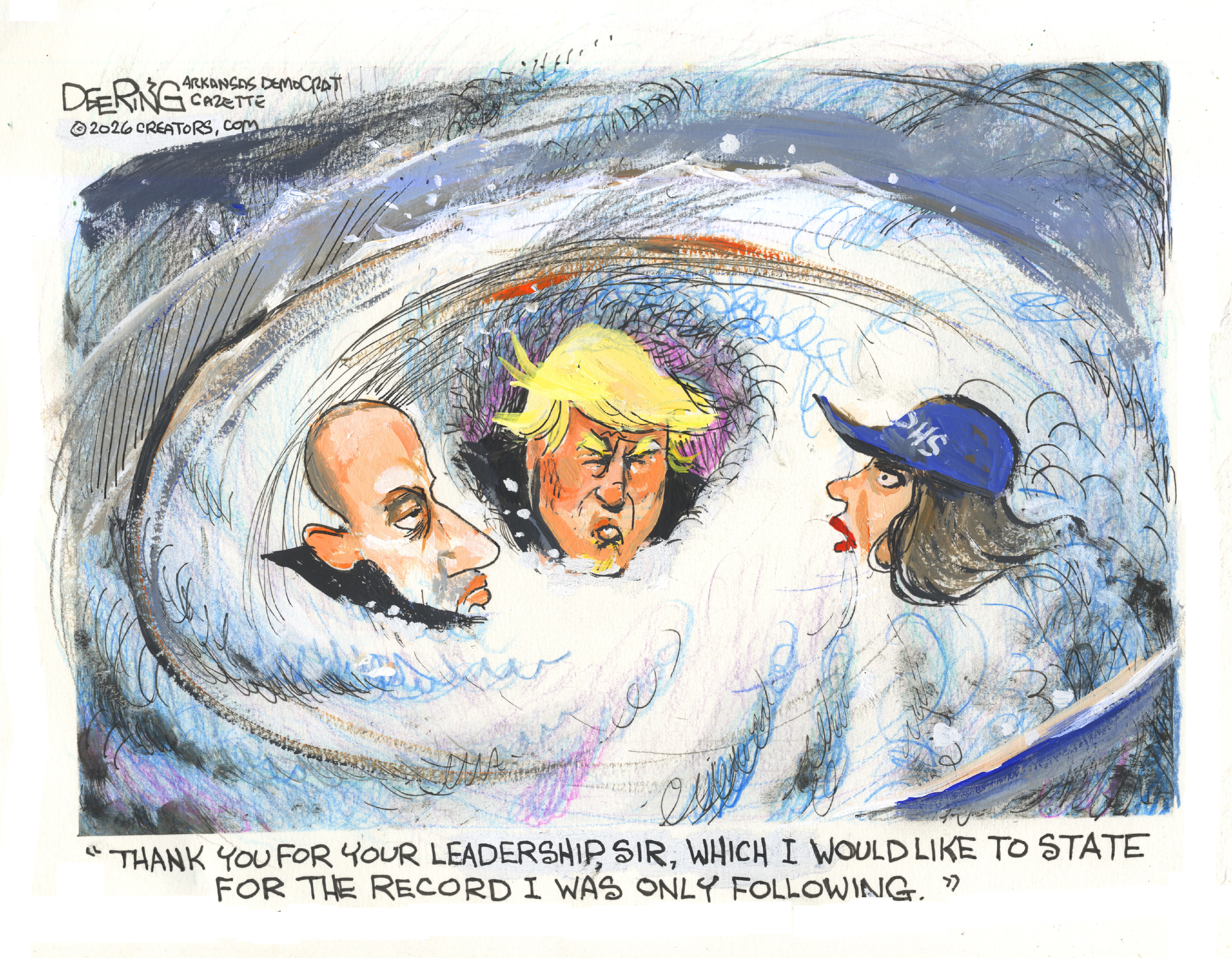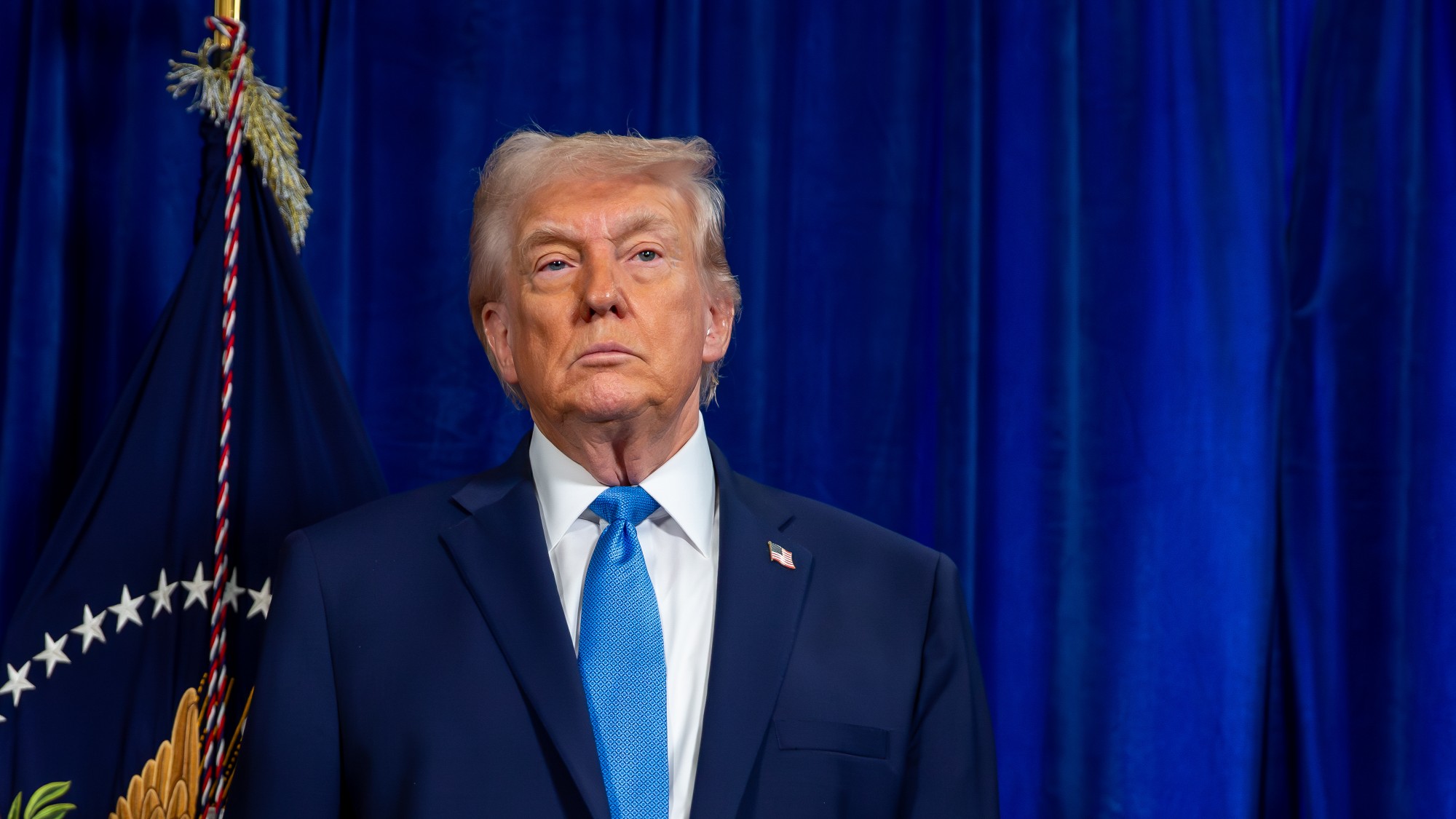Trump isn't a creation of the media. He's a creation of the media market.
Readers and their clicks and views are what the media sells to advertisers. That's solid Trump territory.


A free daily email with the biggest news stories of the day – and the best features from TheWeek.com
You are now subscribed
Your newsletter sign-up was successful
Am I to blame for the rise of Donald Trump?
Well, okay, maybe not me specifically, but journalists in general? The basic charge — leveled by plenty of people — is that the media lavished massively disproportionate coverage on Trump because he generates clicks, and this "free publicity" helped fuel his rise. But I'm not buying it.
First off, it's not obvious that "all publicity is good publicity" actually applies in the realm of politics. But I also think the charge needs to be adjusted: The media didn't create Trump. But the media market may well have.
The Week
Escape your echo chamber. Get the facts behind the news, plus analysis from multiple perspectives.

Sign up for The Week's Free Newsletters
From our morning news briefing to a weekly Good News Newsletter, get the best of The Week delivered directly to your inbox.
From our morning news briefing to a weekly Good News Newsletter, get the best of The Week delivered directly to your inbox.
In fact, you could view Trump's massive coverage advantage as a kind of market failure.
First, let's review the market incentives the media is under. For most print and online media operations, advertisers — not readers — are the customers who provide them their revenue. The readers and their clicks and views are what the media sells to advertisers. The purpose of content is to generate traffic, which generates income from advertisers.
And generally speaking, the higher your traffic, the higher your profits.
Nor did the media somehow trick readers into clicking on Trump stories. We simply started running those stories and discovered that people wanted to read them. Others copied the pattern and got the same result, and we were all off to the races. As Matt Yglesias put it at Vox:
A free daily email with the biggest news stories of the day – and the best features from TheWeek.com
Here at Vox, for example, 13 percent of the stories we published in February mentioned Trump, which is a lot. But that 13 percent generated 26 percent of our total readership. Any subject that performs like that when it's already at a high volume is going to attract more coverage. And to state the obvious, this wasn't a big, deliberate strategy of ours from the beginning or anything. When we were doling out assignments last summer for which writers were going to sum up which candidates' positions on the issues, the Trump write-up went to one of our interns, Tez Clark. Tez was a stellar intern, but that's also a clear reminder that we were not initially thinking Trump would be the frontrunner or the subject of a ton of coverage. [Vox]
This is a great example of why market capitalism is such a powerful force in human society, and why it's so difficult for alternative institutions and cultural setups to prevail against it. You could argue the media should have put the good of the body politic ahead of profits, but that's asking them to commit economic suicide.
So maybe the problem is the readers, who indulge in the Trump Show rather than clicking on substantive stories about substantive candidates? Well, this is where market failure comes in.
The point of markets is to use property rights and price signals to coordinate human behavior. This is so that our societies wind up generating more of the goods and activities that make us better off, and less of the stuff that harms us. But markets are also imperfect human creations, so the price signals that are supposed to efficiently coordinate human behavior can get screwed up.
Pollution is an obvious case. The ability to pollute benefits some specific economic actor or industry, like power plants. But the harms are spread out over the whole population, and the damage to health and ecosystems often takes years to show up. This makes it very hard for property rights and price signals to naturally create a system where the people harmed by pollution can charge polluters for the damage. So government has to step in, most often with regulation. (Climate change is the mother of all examples here.)
You could also go broader, and — following the lead of someone like economist Jared Bernstein — describe poverty and inequality themselves as market failures. This is because basic economic setups and forces — aggregate demand, bargaining power, labor market institutions, and so forth — often fail to deliver the distribution of income and resources that we might want.
This brings us back to Trump's coverage. It's a market failure in the same sense as poverty: A public discourse that prizes substantive issues and serious debate over the clown show of a racist demagogue is (or should be) a first-order moral goal of our society. But our markets and related institutions, as they exist, aren't delivering it.
But it's also a market failure in the sense of pollution: The benefits of covering Trump are felt specifically and immediately by the media industry in terms of traffic and profits, not to mention the immediate enjoyment of readers. The costs — a degraded public discourse and political process — are more diffuse and only emerge over time.
So what are the fixes? Having government step in to regulate media coverage based on subjective value judgments would be a terrible, horrible, no good, very bad idea. But if the market as designed is not delivering the outcomes we want, we should start thinking about alternative institutional setups. I've already written about a few possibilities: We could have the federal government provide a web of permanent funding streams to states and localities to set up their own journalism outfits, outside of (or at least cushioned from) the pressures of the for-profit market. Or we could provide a voucher to every citizen, which they could then direct to the media outlet of their individual choice, achieving the same effect without the conflict of interest that comes with local, state, or federal government deciding where the funding goes.
If your complaint with the media is that it simply hasn't questioned or challenged Trump substantively, these changes could also help: Asking informed, policy-based questions requires sustained investment in skilled and knowledgeable reporters, which is costly. And for-profit market media may have permanently shifted away from a business model that can provide that investment.
The broader point though, is to remember the media market — or any other market — isn't our master. It's our creation, designed to deliver us the results we want.
And if the Wall-To-Wall-24-Hour-Trump-Show isn't a result we want, then we can go in and tinker with the engine until it spits out something better.
Jeff Spross was the economics and business correspondent at TheWeek.com. He was previously a reporter at ThinkProgress.
-
 Political cartoons for February 8
Political cartoons for February 8Cartoons Sunday’s political cartoons include going down the drain, American history, and more
-
 Touring the vineyards of southern Bolivia
Touring the vineyards of southern BoliviaThe Week Recommends Strongly reminiscent of Andalusia, these vineyards cut deep into the country’s southwest
-
 American empire: a history of US imperial expansion
American empire: a history of US imperial expansionDonald Trump’s 21st century take on the Monroe Doctrine harks back to an earlier era of US interference in Latin America
-
 The billionaires’ wealth tax: a catastrophe for California?
The billionaires’ wealth tax: a catastrophe for California?Talking Point Peter Thiel and Larry Page preparing to change state residency
-
 Bari Weiss’ ‘60 Minutes’ scandal is about more than one report
Bari Weiss’ ‘60 Minutes’ scandal is about more than one reportIN THE SPOTLIGHT By blocking an approved segment on a controversial prison holding US deportees in El Salvador, the editor-in-chief of CBS News has become the main story
-
 Has Zohran Mamdani shown the Democrats how to win again?
Has Zohran Mamdani shown the Democrats how to win again?Today’s Big Question New York City mayoral election touted as victory for left-wing populists but moderate centrist wins elsewhere present more complex path for Democratic Party
-
 Millions turn out for anti-Trump ‘No Kings’ rallies
Millions turn out for anti-Trump ‘No Kings’ ralliesSpeed Read An estimated 7 million people participated, 2 million more than at the first ‘No Kings’ protest in June
-
 Ghislaine Maxwell: angling for a Trump pardon
Ghislaine Maxwell: angling for a Trump pardonTalking Point Convicted sex trafficker's testimony could shed new light on president's links to Jeffrey Epstein
-
 The last words and final moments of 40 presidents
The last words and final moments of 40 presidentsThe Explainer Some are eloquent quotes worthy of the holders of the highest office in the nation, and others... aren't
-
 The JFK files: the truth at last?
The JFK files: the truth at last?In The Spotlight More than 64,000 previously classified documents relating the 1963 assassination of John F. Kennedy have been released by the Trump administration
-
 'Seriously, not literally': how should the world take Donald Trump?
'Seriously, not literally': how should the world take Donald Trump?Today's big question White House rhetoric and reality look likely to become increasingly blurred
